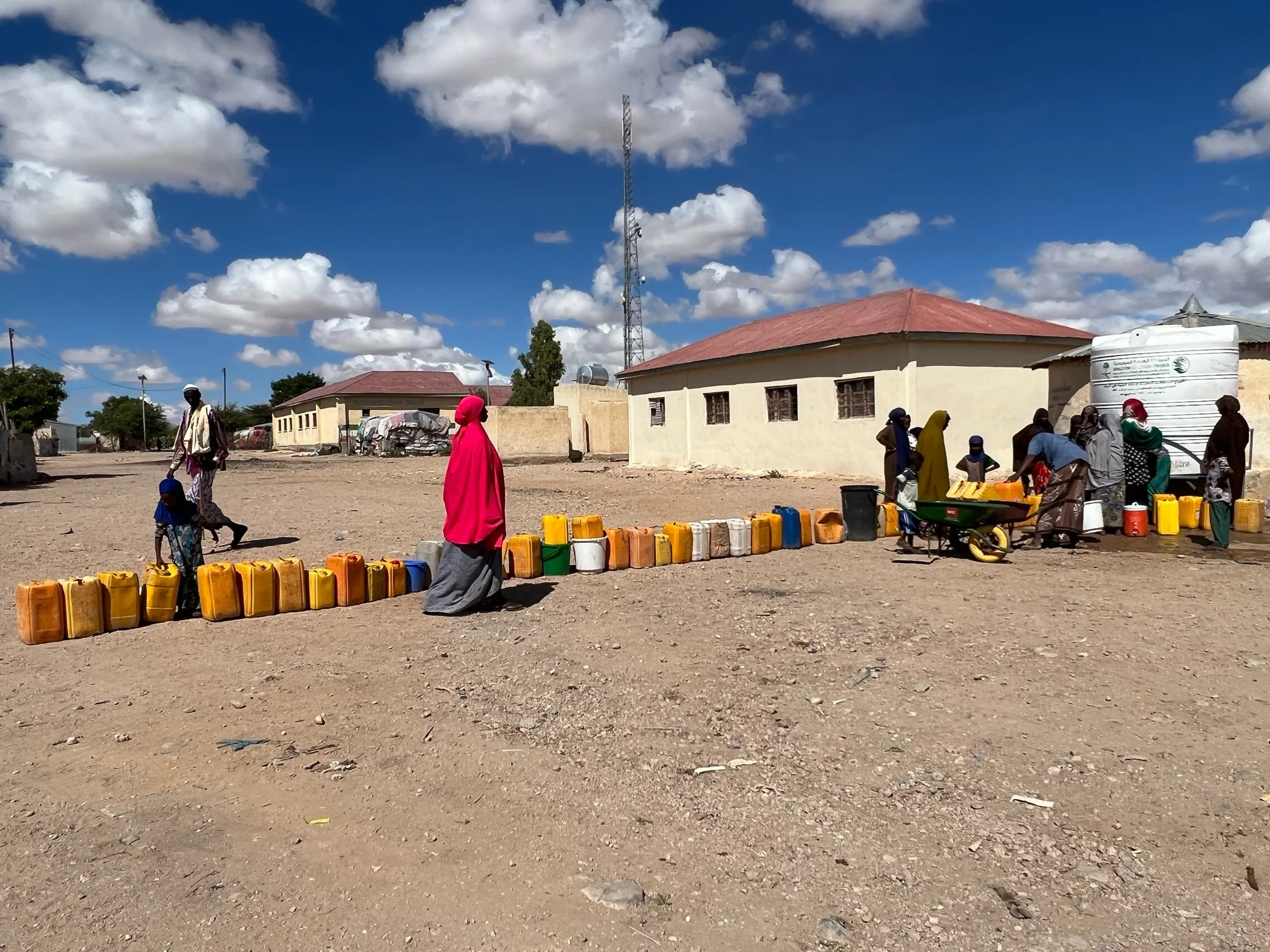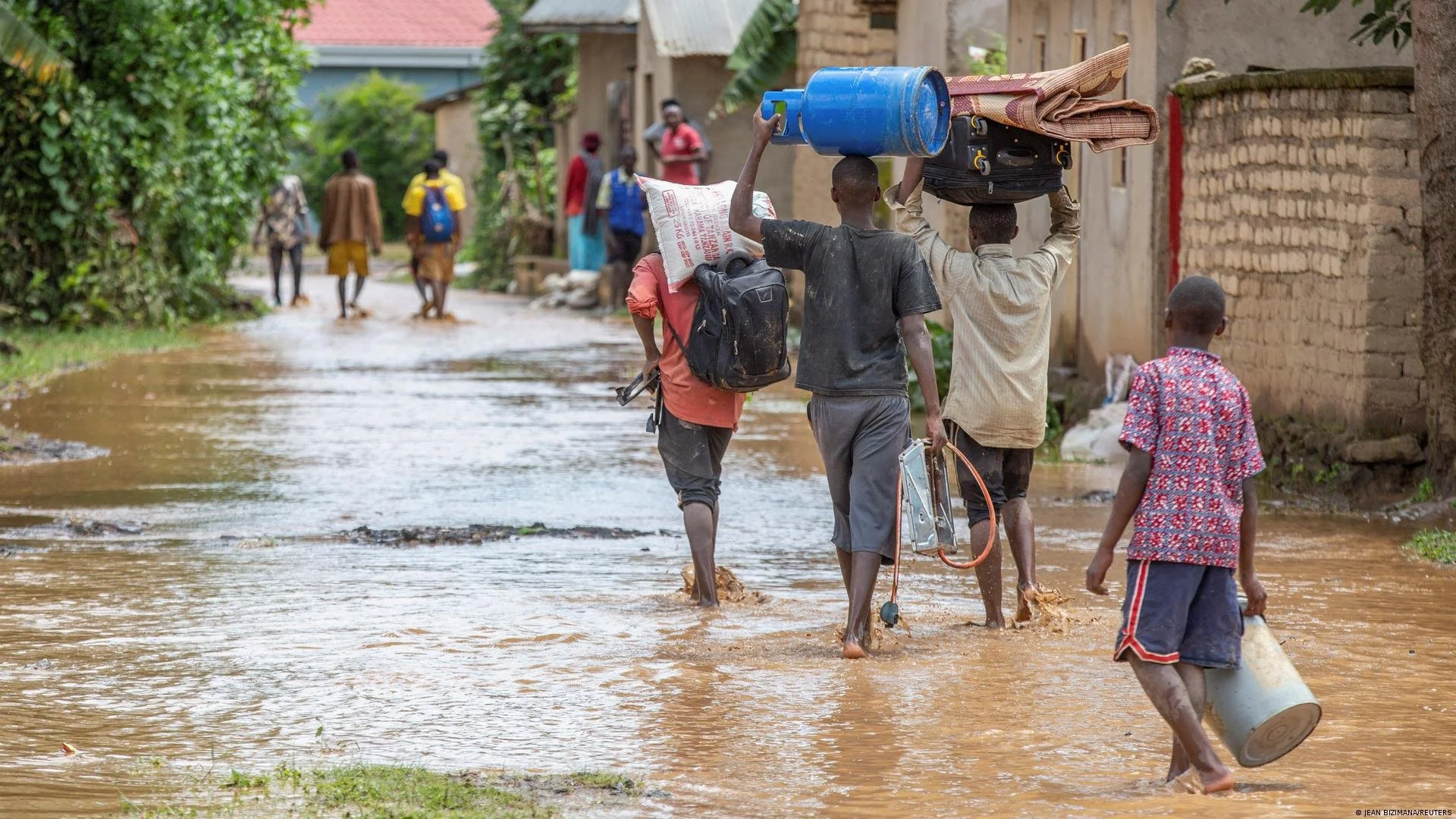Ultimately, the UN Special Rapporteur’s latest report is an urgent reminder that the time to take action on climate displacement is now. While aiming to develop a broader legal framework to protect the rights of those displaced across borders by climate change—such as enhancing existing refugee protections in the 1951 Refugee Convention, Latin American and African regional instruments like the Cartagena Declaration and OAU Convention, as well as exploring a new protocol to address cross border climate change-induced displacement — states must take immediate action to expand the provision of humanitarian visas and provide new, additional, and sustained financial support to ensure that human security is front and center in climate change response.
Global Displacement On the Rise, But Lack of Comprehensive Data and Understanding of Climate Change Displacement Persists
When it comes to displacement, there is a tendency to focus on one type at a time, usually internal or cross-border displacement. While this can be helpful in developing digestible advocacy messages and manageable policy responses, a siloed approach runs the risk of perpetuating gaps in data and understanding, especially when it comes to displacement as a result of climate change.
Colombia Moves Closer to Legally Recognizing Internal Climate Displacement
Should it be successful, the law would be the first of its kind in Latin America and the Caribbean, a region where the World Bank’s estimates there could be as many as 17 million internal climate migrants by 2050, representing 2.6 percent of the region’s total population.
While the new law only addresses internal climate displacement, it could have significant regional implications as countries continue to step up efforts to address both internal and cross-border movement due to the effects of climate change.
Climate Change is Causing Increasing Levels of Floods and Landslides in Rwanda
Earlier in the year, the United Nations Development Programme (UNDP) outlined that globally, flood-related disasters have increased by 134% since 2000, and floods are now lasting 29% longer. In fact, it is projected that climate change will push 130 million people into poverty over the next decade, creating multiple development setbacks, while also forcing 200 million internal migrants by 2050.
ICJ to Consider Countries’ Climate Change Obligations in Major Milestone
The resolution, which was adopted by consensus, seeks the opinion of the ICJ on the obligations of states, under international law, to protect other states who are unjustly impacted by the climate crisis as well as the rights of present and future generations against the adverse effects of climate change.
IPCC’s Final Warning is an Urgent Reminder to Take Action on Climate Displacement
Last week, the Intergovernmental Panel on Climate Change (IPCC) published its Sixth Synthesis Report, summarizing the state of knowledge on climate change science with a clear message: “if we act now, we can still secure a liveable sustainable future for all.” The report also makes clear that yes, the climate is changing and with it, patterns of migration as well.







